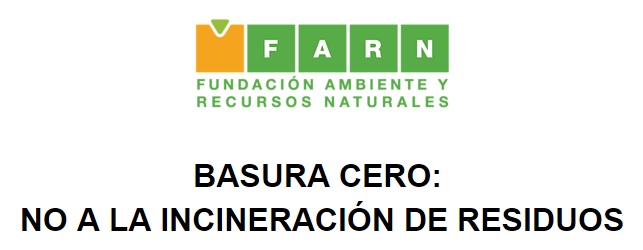Buenos Aires, May 3, 2018-
Today the Legislature of Bs As City approved -with 36 votes in favor and 22 against-, the law that will enable the city to incinerate the urban waste that is generated in the district, which will extend, by logical consequence, to the great Buenos Aires.
The project approved by the Legislature seeks to change the goals and deadlines committed to reducing the amount of waste that is expected to be sent to the sanitary landfills foreseen by the Zero Waste Law, and at the same time remove the ban on incineration of waste.
The proposed reform will radically change the existing waste management system in the City. However, the project has not had any type of previous debate, nor in a manner supervening its treatment. No government official, legislator or people related to the project have explained or informed about its scope, which is why the possible social, economic and environmental impacts that the decision may have are unknown.
This project has motivated the pronouncement of representatives of multiple sectors (see below), who with various arguments have expressed themselves against the proposed reform.
Nobody doubts about the need to make changes and deep modifications to the existing Waste Management system in the Metropolitan Area of Buenos Aires, and that this should also be extended to the most populated cities in Argentina. The question is whether the incineration of waste is the best way to achieve it.
Incineration is a source of emission of a large number of compounds toxic to health, including several carcinogenic substances such as dioxins and furans. According to the World Health Organization (WHO), 2 million people die every year in the world due to the inhalation of suspended particles. Adding air pollution to cities already saturated with pollutants, such as Buenos Aires and cities in the Buenos Aires suburbs, implies a drop in air quality indexes.
Incineration competes with recycling. In this competition, recyclable waste (of greater calorific value) is the most sought after, both by incineration plants and by the recycling industry. The approval of this project will put in serious risk the more than 5,000 people who work in the collection, classification and processing of materials for recycling, only in the field of the popular economy.
“Enabling the incineration of waste in the City of Buenos Aires does no more than acknowledge the failure of the government in waste management and opens several questions: we do not know what technology is behind it, nor the impacts it will have. From the economic point of view it is expensive, the cost per ton that is burned is high, and in the countries where it works, it does so with subsidies. In addition, it competes with the economy of recycling, which generates a large number of sources of employment “, explains Andrés Nápoli, Executive Director of FARN.
See FARN Report on waste incineration
See note: Eduardo Macchiavelli, FARN and Cooperativa “El Ceibo” in “La Cornisa” – Luis Majul – 04/29/2018
See statement on incineration of researchers from National Universities
See the position of the Argentine Chamber of the Plastic Recycling Industry
Hard letter of the villeros priests against the project of garbage incineration
See statement of the Faculty of Agronomy (University of Buenos Aires)
